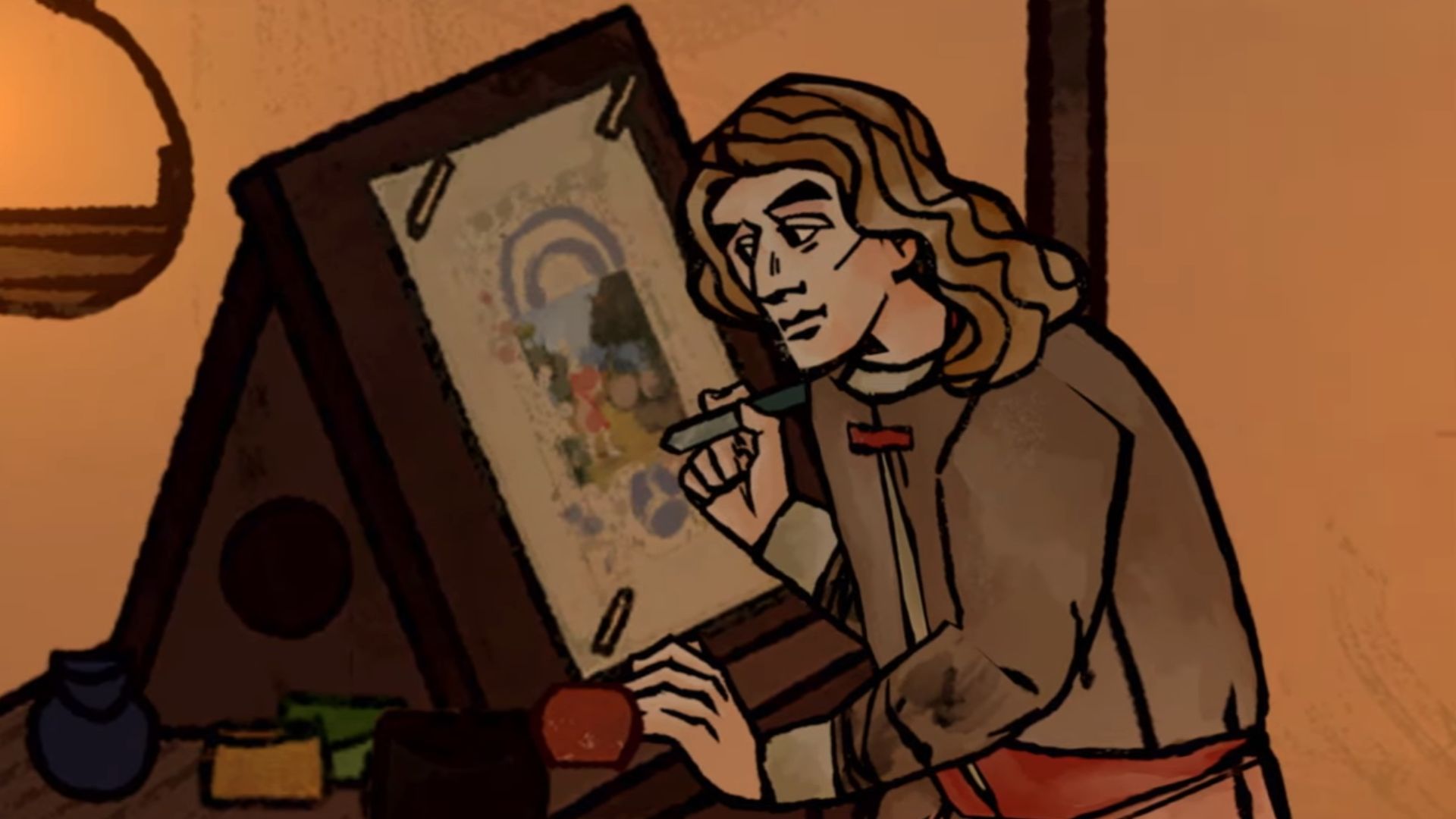After the credits of Pentiment, Fallout: New Vegas developer Obsidian’s latest RPG, noted that the game itself had no localization staff, director Josh Sawyer said there would be proper attribution. Sadly though, this is just another example of how the gaming industry as a whole, and not just the developers outsourcing work, can’t help those who need it most.
It all started with game designer Hayden Scott-Baron pointing out that Pentiment makes no mention of localizers, developers translating text, themes, assets, and cultural and legal differences in a game to match a different language. It’s hard and important work, and the teams of localizers and translators deserve respect.
“We have not forgotten” Pentment directed by Josh Sawyer replied: “But thanks for noticing that they are not there. We request lists of translator names for all languages through our partners and we did not receive these lists before launch. We will ask again and will correct them as soon as they appear.
Following Sawyer’s response, we’ve reached out to Obsidian for a full response and will update this article if we receive one.
The related thread is full of frustrated game localizers and translators, appreciating Josh’s response – which, in the words of one, “almost never happens” – but also sharing anecdotes that reveal a recurring problem in this area of game development.
To better understand how a lack of proper accreditation can affect individual developers in the long run, we spoke with Tamara Morales, a native Spanish speaker and English to Spanish video game translator. Morales did not work on Pentiment, but her problems are not unique or new.
“If they don’t mention you, you don’t have a portfolio or a way to show what games you’ve translated or edited,” says Morales. “It’s like you don’t have proof that you worked on the game… Unfortunately, developers and agencies only seem to respond to bad press.”
These agencies often partner with developers like Obsidian who need outside expertise to ensure translation and localization is done to high standards. But they can also have strange and restrictive rules for their employees.
“There are agencies whose policy is not to trust us,” says Morales. “And there are times when only one agency [itself] Credited: Tunic, Artful Escape, Stray, The Gunk.
Some localizers and translators are listed above in these credits, for example if they work for a third-party developer, but the names of those who work for the agencies that localized these games are not listed in the credits.
It is not always the case that a particular study deliberately chooses not to include individual locators. This may be due to the agency contract or, in the case of Pentiment, very poor timing and lack of urgency on the part of the partners.
If what Sawyer tweeted about “partners” is to be taken at face value, he says many partners didn’t send their tracker lists who worked on Pentiment to his studio in time for release. It goes without saying that this should be standard practice. You want to see your name in a game, movie, or TV show the day it comes out, not after.
“Right now there is pressure from both sides (translators/developers),” Morales tells us. “But the same thing happened to [another Obsidian release], Founded. I don’t know if they used the same agency, but there are no loans either.
Grounded, which recently went fully released after some time in Early Access, highlights another issue with the lack of proper tracker accreditation: the exclusion of MobyGames workers.
Designed to be a video game database, MobyGames has comprehensive author lists for thousands of titles, making it easy for the industry to verify who worked on specific games and the lifespans of specific developers. As you can imagine, it’s a lot easier than looking at YouTube subtitles every time you want to check who worked on what.
The problem is that MobyGames doesn’t always update their titles when the titles of the game itself are updated, as was the case with Grounded and eventually Pentiment.
“Unfortunately, excluding quantities is like forgetting” Scott-Baron responds to Sawyer on Twitter. “The credit solution excludes MobyGames employees. For example, there are no translators for Grounded.”
So while adding localizers and translators after the fact is better than ever, it’s usually too little too late. Instead, developers and agencies should work together to have a full merit list on launch day, not only to reward their employees for their efforts, but also to ensure that hard work and talent are more easily recognized, which helps to make it better. long term games.
Source : PC Gamesn

